FY2016 PERFORMANCE REPORT
 IMPLEMENTATION
IMPLEMENTATION
Number of internships
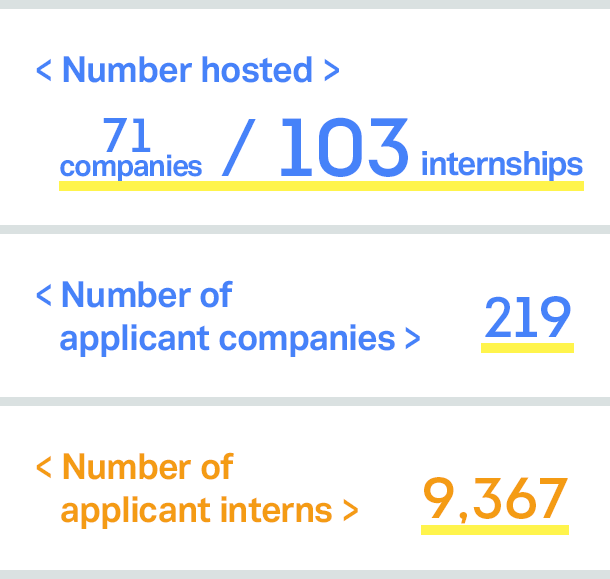

Intern nationalities
| REGION | INTERN NATIONALITY | TOTAL |
|---|---|---|
| Asia | Viet Nam | 30 |
| Asia | China (People's Republic of) | 25 |
| Asia | Indonesia | 13 |
| Asia | Thailand | 10 |
| Asia | India | 6 |
| Asia | Malaysia | 4 |
| Asia | Philippines | 4 |
| Asia | Nepal | 2 |
| Asia | Myanmar | 1 |
| Asia | Pakistan | 1 |
| Africa | Morocco | 1 |
| Africa | Senegal | 1 |
| Africa | Sudan | 1 |
| Middle East | Iran | 1 |
| Europe | Moldova | 1 |
| Europe | Uzbekistan | 1 |
| Central and South America |
Haiti | 1 |
| 103 |
Host regions
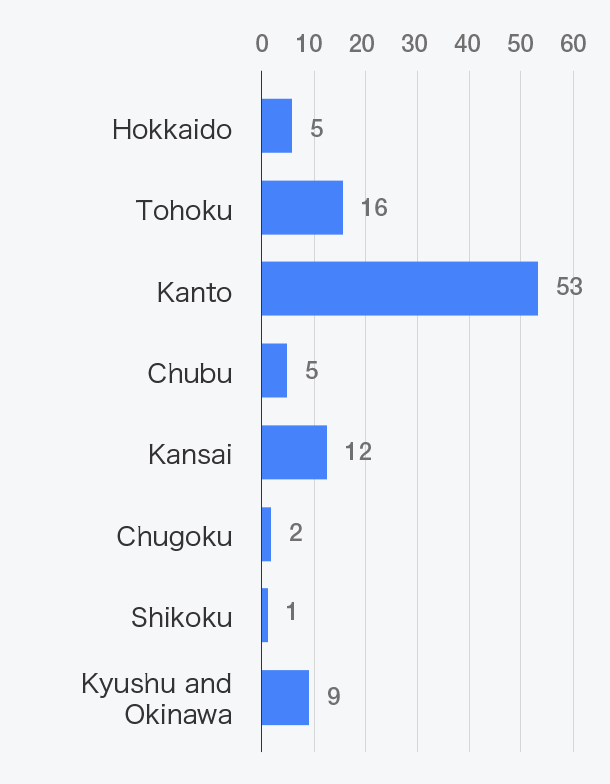
Business sectors
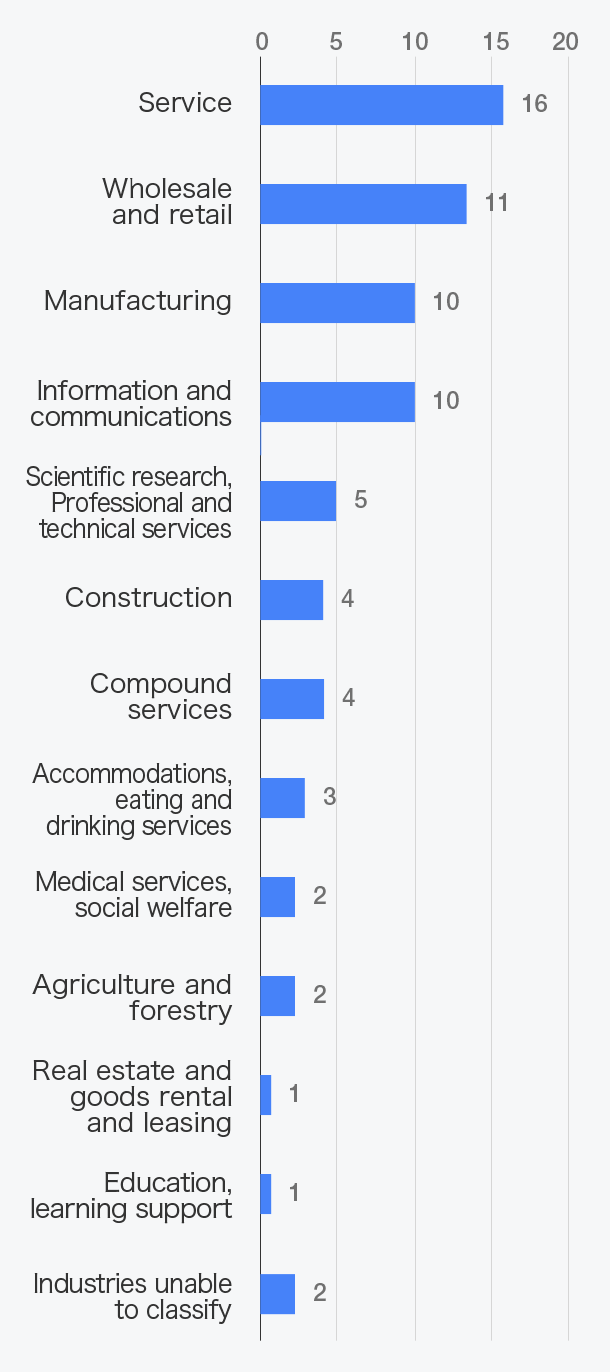
Scale and status of overseas operations of host companies
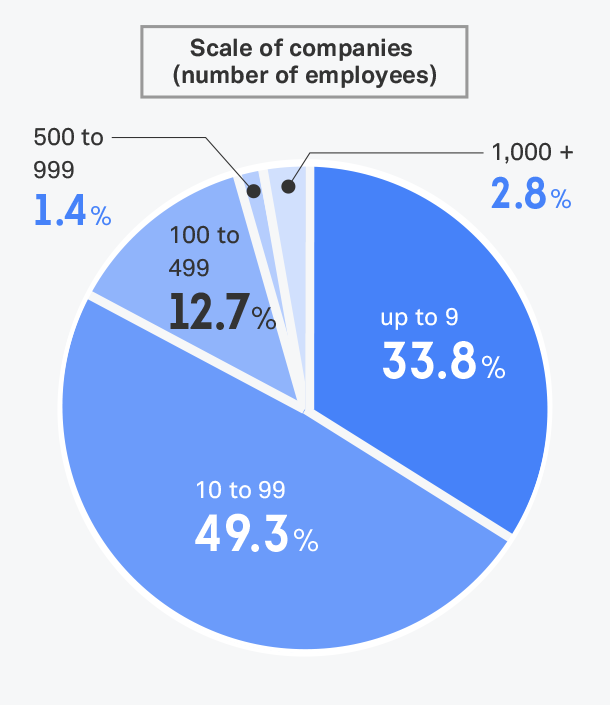
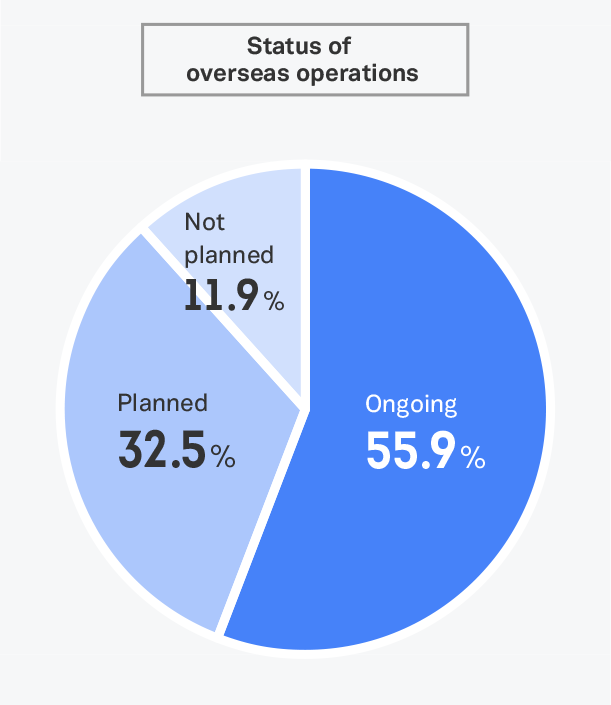
Interns’ linguistic abilities
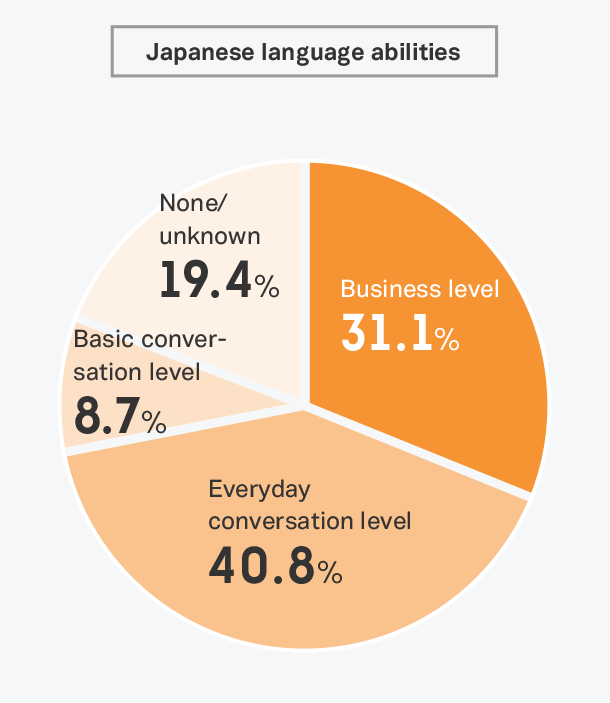
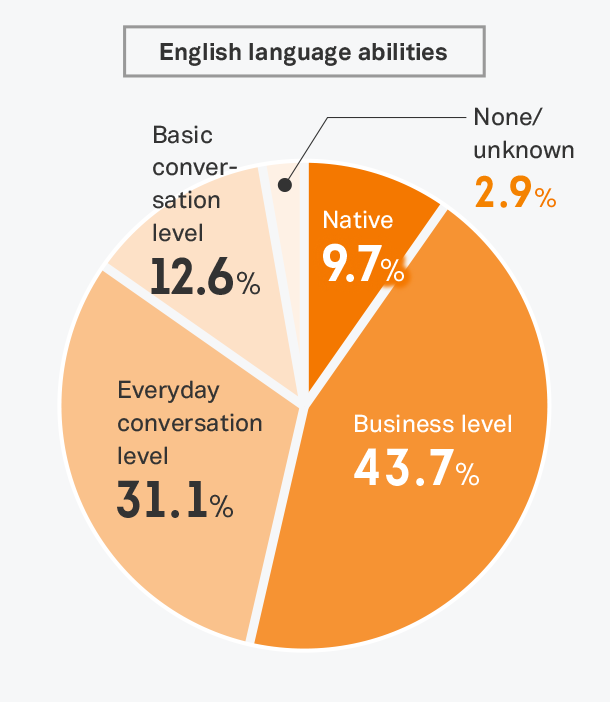
 RESULTS* Results of a post-internship survey.
RESULTS* Results of a post-internship survey.
 Were you satisfied with the internship overall?
Were you satisfied with the internship overall?
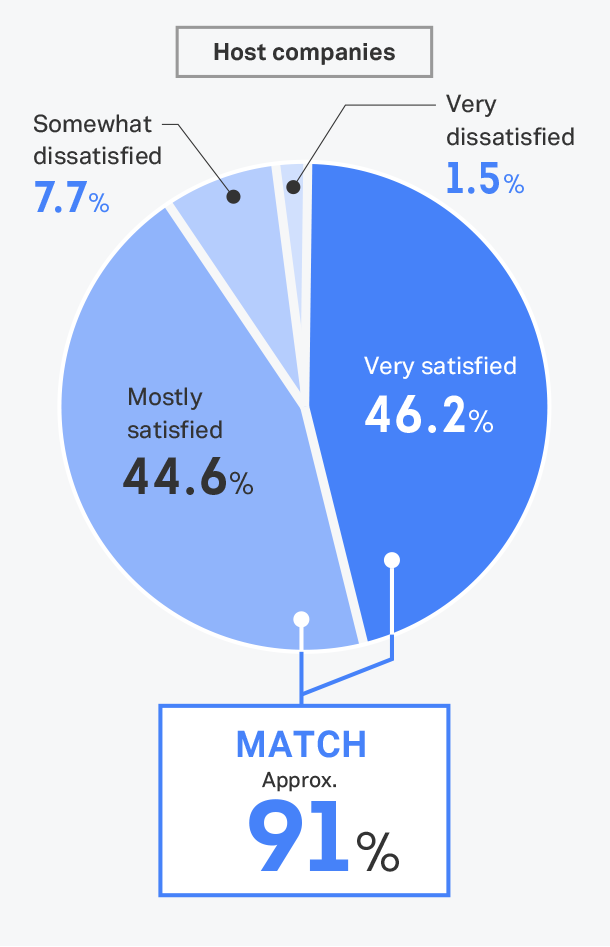
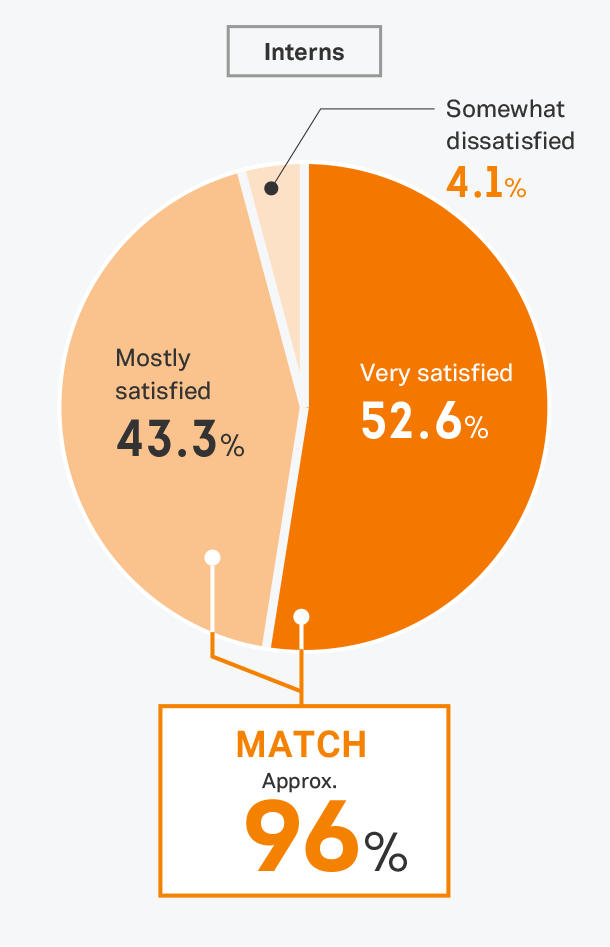
 Did the intern/company recommended to you by the Program Office match your preferences?
Did the intern/company recommended to you by the Program Office match your preferences?
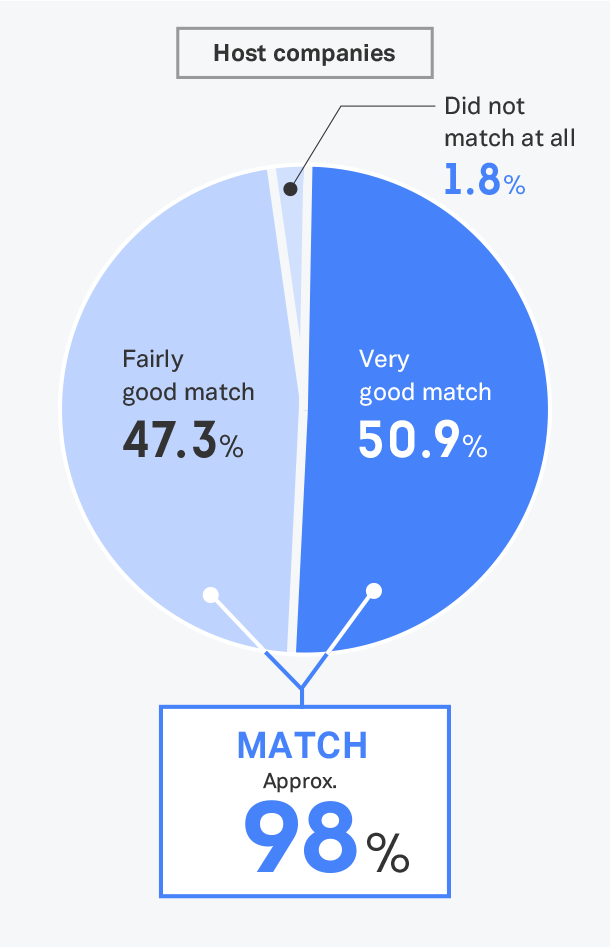
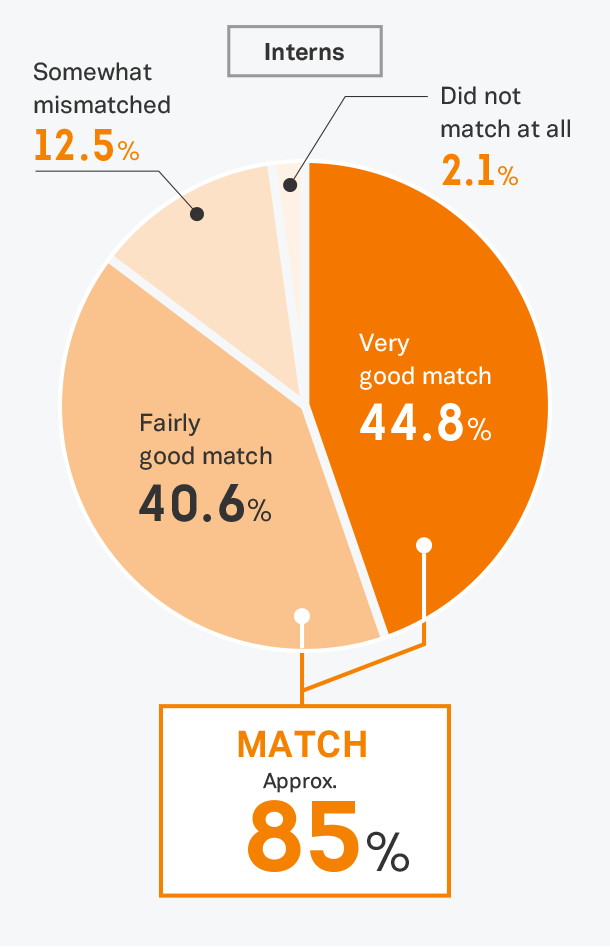
 What did you gain from the internship?
What did you gain from the internship?
(Multiple answers)
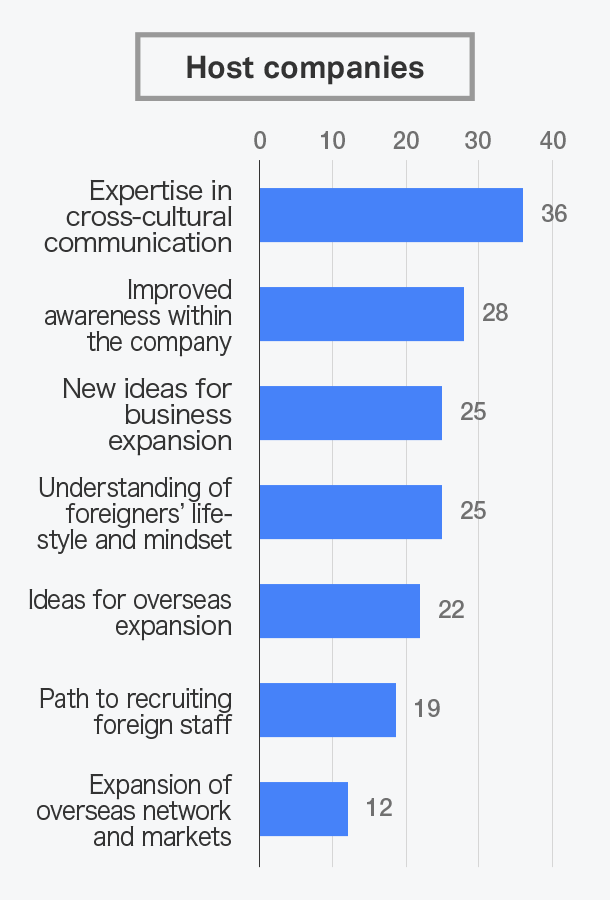
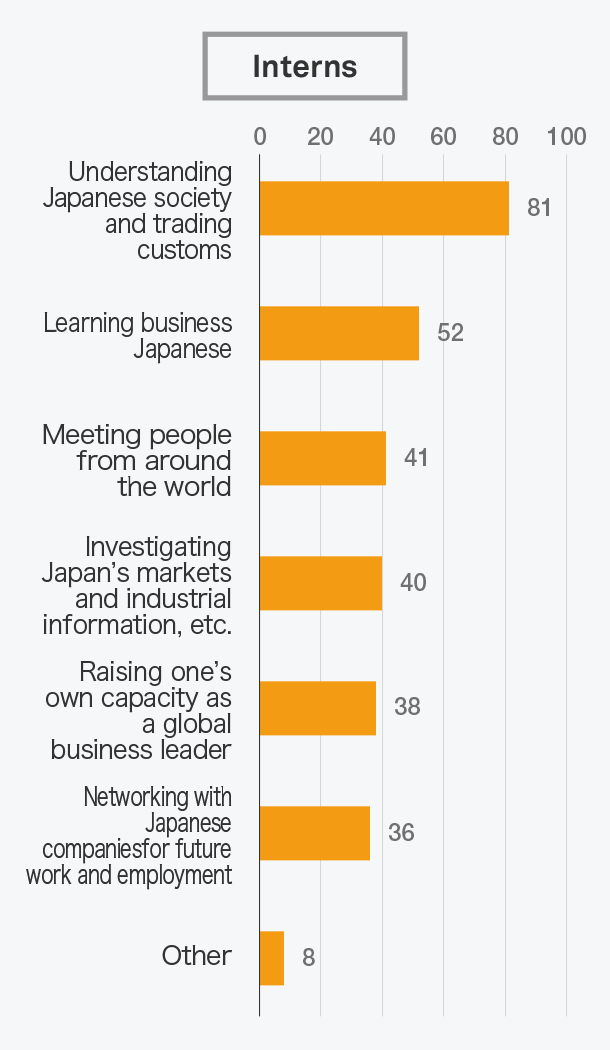
 How did the internship influence your company’s overseas business and new business development?
How did the internship influence your company’s overseas business and new business development?
(Multiple answers)
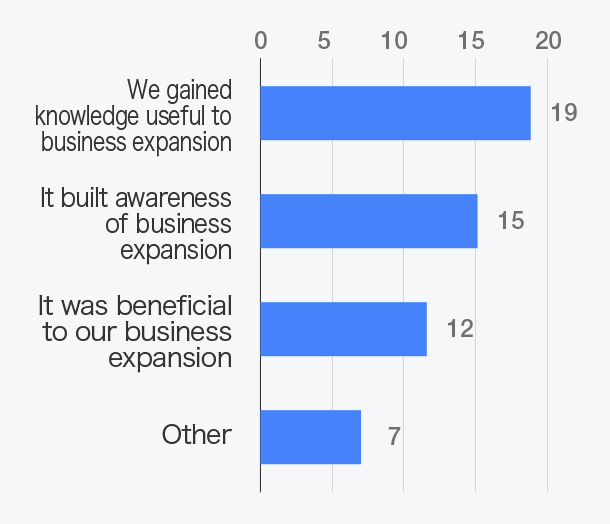
- It was great that the intern was able to reach out to new agents through English, do online marketing, and conduct interviews with overseas customers. (Eating and drinking services)
- The intern helped us to develop devices that a Japanese designer would not have thought of. We were able to create a Japanese corporate website targeted overseas. (IT)
- We further clarified our foothold for launching operations in Vietnam. We built valuable connections with our existing Vietnamese employees. (Construction)
- Our intern gave us suggestions about how to develop our project in Indonesia, and organized information about it. The internship gave us access to new information and helped our sales activities. (Service)
- Our intern gave us a non-Japanese perspective on our products. We learned about lots of differences in how foreign customers perceive things like the instructions and product descriptions we provide. (Construction)
- Hosting a foreign intern also provided the Japanese management team with ideas from a variety of perspectives; it was a very fruitful collaboration. (Manufacturing)
 How did this lead to a change in the thought processes of your employees? (Multiple answers)
How did this lead to a change in the thought processes of your employees? (Multiple answers)
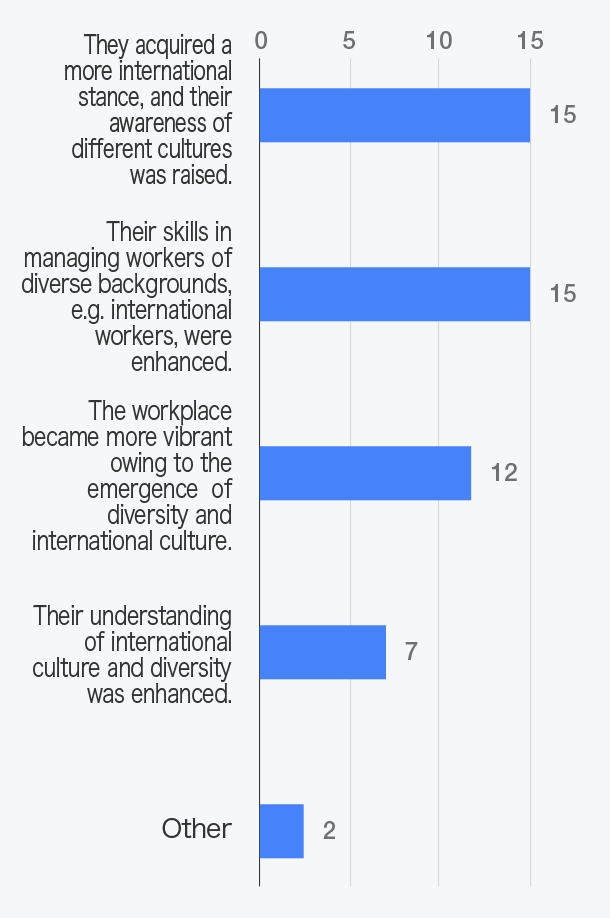
- Our employees are not very proficient in English but they were able to broaden their internationally-oriented horizon by proactively communicating, even utilizing non-verbal means. (IT)
- Our employees became acutely aware of the fact that we are a company engaged in overseas business. This was a great opportunity to make our domestic operations divisions aware of the activities of their peers in the international department. (Service)
- Within the process of conveying information and teaching to the interns, our employees were able to go beyond merely translating what they want to say into English, and to reach a place of higher communication ability encompassing the background of the topic, the position or the level of understanding of the intern, etc. This was an opportunity of high educational value, especially when it comes to diversified communication strategies. (Wholesale, retail)
- The employees on the floor where the interns were started using English naturally. The “wall” between them and the foreigners vanished. (Manufacturing)
- Our employees learned from the interns to be more proactive, and more (within responsible limits) self-assertive, a skill Japanese people have started to forget. (Manufacturing)
- A momentum of positively treating different culture was born. (Wholesale, retail)
- This was a great opportunity to rethink the ways of HR management, even towards Japanese employees. We got to a place where we can approach things with a bigger heart, and less anger. (Manufacturing)
 How did this lead to employing foreigners?
How did this lead to employing foreigners?
(Multiple answers)
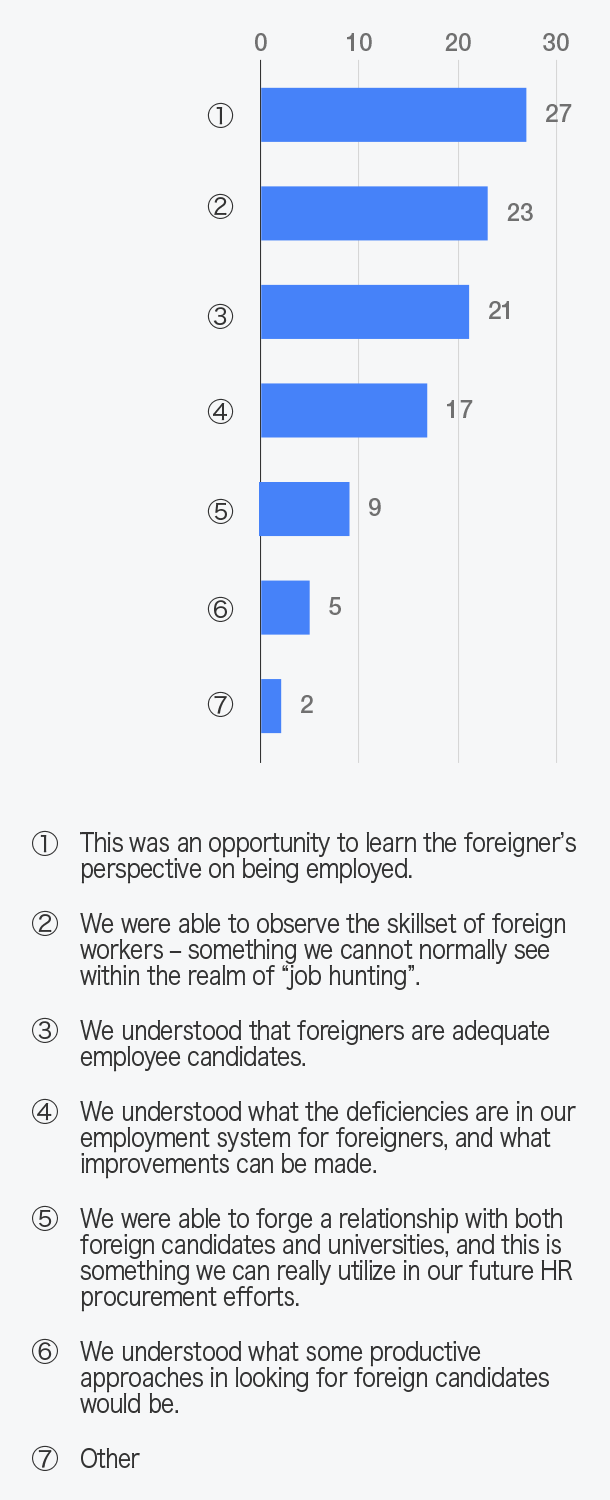
- Rather than being employed in Japan, he is looking into setting up shop in his country, and establishing with us “an MOU-based branch” type of relationship. (Service)
- Next year we are scheduled to employ an Indonesian national. In this sense this was a very educational experience preceding the actual employment. (Manufacturing)
- We were able to forge a relationship with the university. (Construction)
- All activities were permeated with an earnest and forward-looking spirit. We were able to find novel directions in our HR procurement activities, as a result of the barrier-free atmosphere of cooperation that defined the communication and the activities of the interns and the Japanese employees. (Wholesale, retail)
- The intern showed exceptional ability to fully comprehend our business (we are a self-sufficient company), and was extremely proactive in contributing to the work process. It was very informative to learn about the opinion of foreigners. In addition, there was a sense of rejuvenation of the workplace. (Manufacturing)
- 1. I learned that the help of foreigners is indispensable for overseas expansion. 2. I learned a new perspective on work, namely that it exists in order to produce an enhancing impact on our private lives. 3. I was able to truly appreciate the skillset of that person but actually having them work for me. 4. I learned that it is important to at least have an English version of the employment agreement, if we want to employ foreigners, since as of now we have only a Japanese agreement. (Construction)





